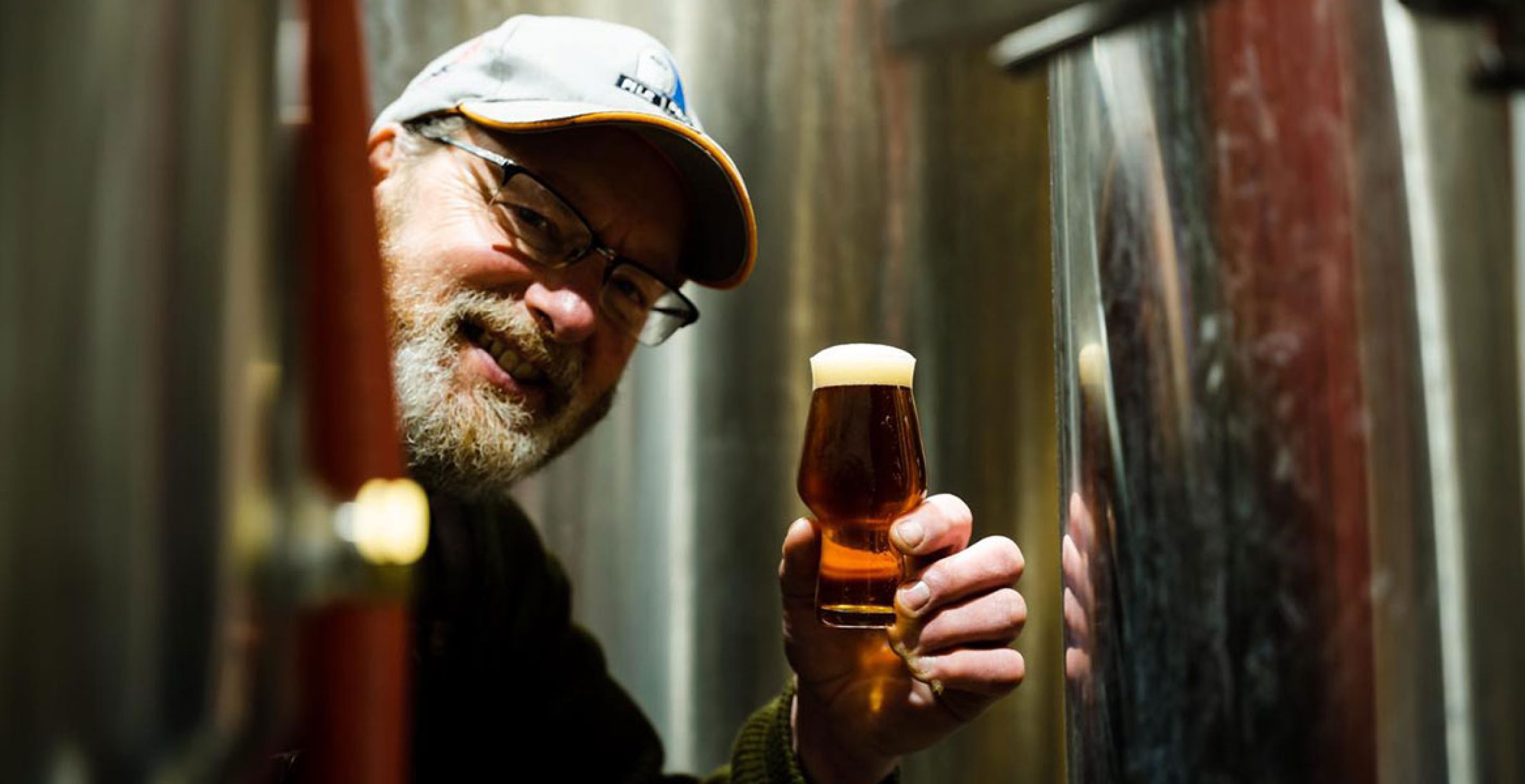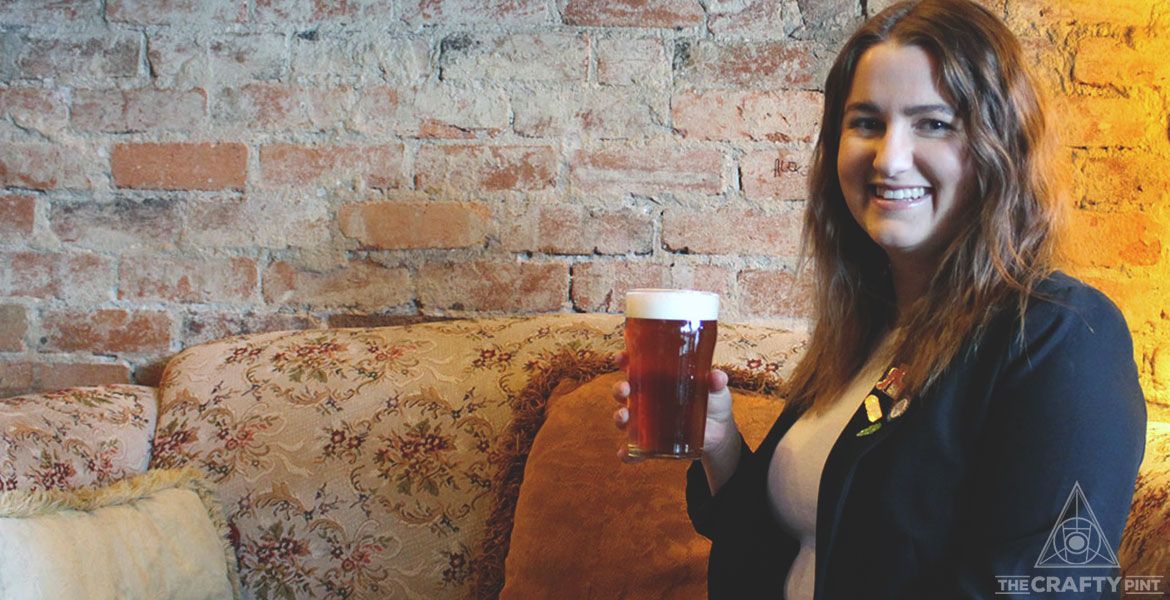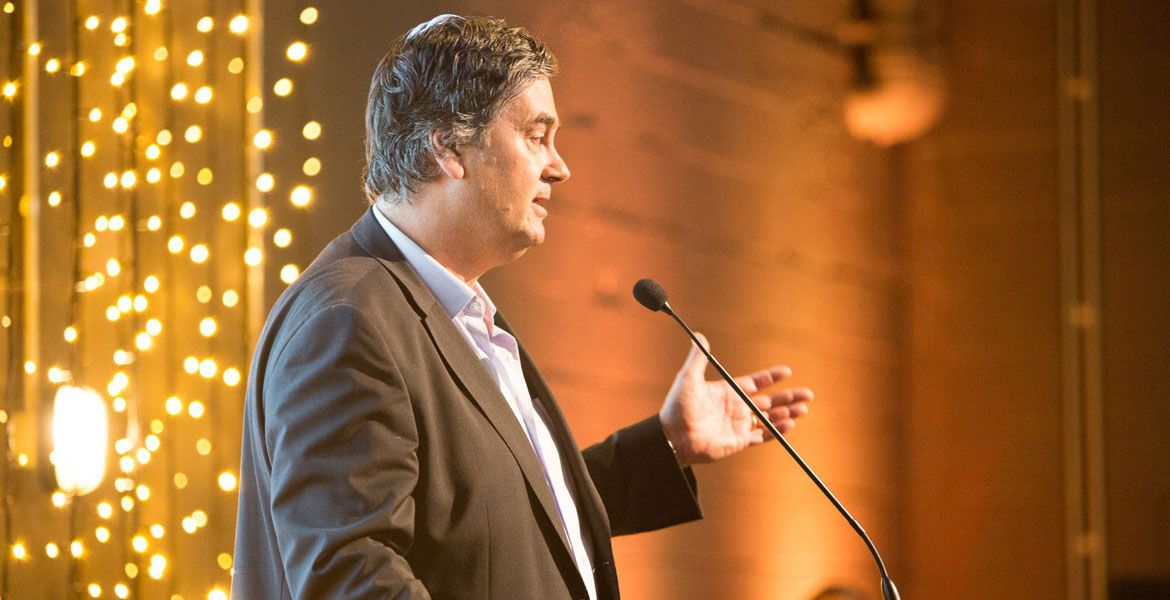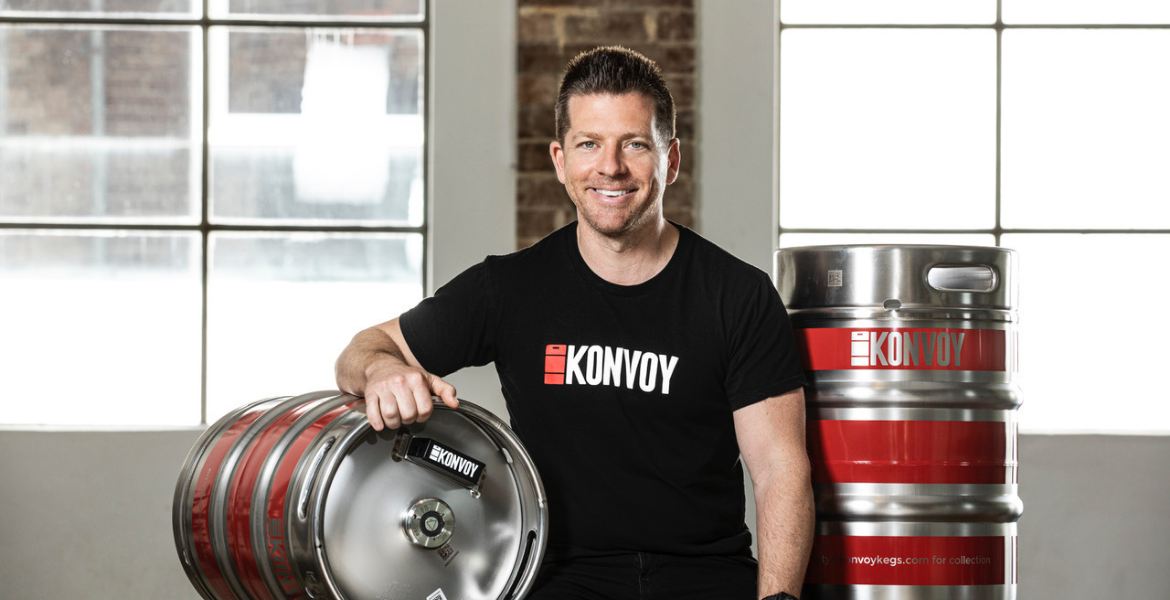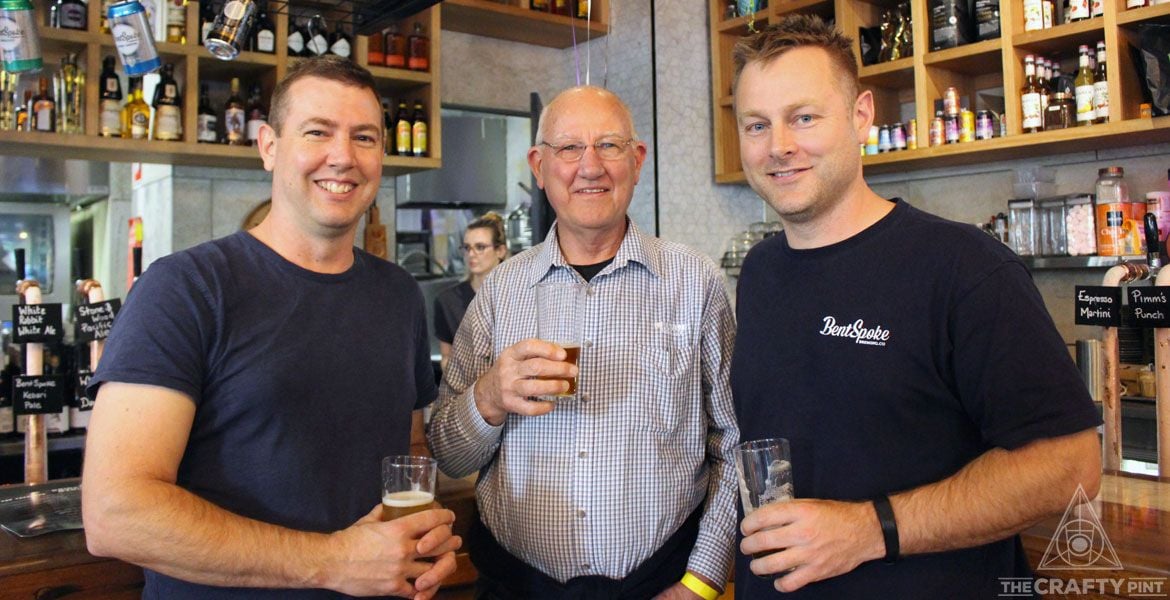Scott Overdorf may not hail from Hobart but his impact on the city’s craft beer industry has been profound.
Close to a decade-and-a-half ago, the brewer and his wife, Kate, made the move to Tasmania; in his time there, he brewed with the state’s craft beer pioneer, played a pivotal role in the launch of one of the city’s first modern taprooms, has been a constant and welcome presence at industry events, and has acted as both frequent collaborator and source of knowledge.
A few weeks back, Scott hung up his mash paddle for the last time – commercially, at least – yet speaking as he eased into retirement, the Hobart Brewing Co founding brewer told The Crafty Pint there's also a whole lot he's looking forward to – not least the chance to enjoy being on the other side of the bar more often as he continues as a board member at the brewery. More than that, however, he'll be able to do a lot more of what he and Kate came to the state to do in the first place.
“We’re definitely going to be seeing a lot more of Tasmania,” Scott says. “We moved over here 14 years ago and we were drawn here by the bushwalking, sailing, paddling and everything.
“Then the realities of real life and work do take over, so we’re looking forward to doing all the things we came over here for in the beginning.”
Before moving, the couple had visited the island state and, clearly, the appeal of Tasmania was strong. At the time, Scott was working at a brewpub in Boulder, Colorado, called Mountain Sun Pub & Brewery, where he was happy to have found a position doing what he loved.
“That was my dream brewing job,” he says. “I was enjoying work more than at any point in my life but we moved because the pull to move to Tasmania was stronger."
The pull may have ben strong, but leaving America behind meant leaving behind some of the beers he loved most – even if that was only temporary.
“In Colorado, you drank IPA,” he says. “We moved here 14 years ago and you couldn’t buy one anywhere.
“But it’s been more exciting being part of the industry here in Australia, particularly in Tassie, than if I’d stayed in Colorado.”

Before brewing at Mountain Sun, Scott had enjoyed a varied career that included plenty of ski slopes, and a period living and working in Bavaria, the region of Germany where his passion for beer really blossomed.
“All of a sudden, I had all these beer styles around me I’d never heard of,” he says. “Then I got home to America and was telling a friend who said, 'You know, you can make beer at home.'
“I was one of those tragic homebrewers who started it off as a harmless hobby making bad beer. Then it became too much of an obsession.”
The move from homebrewing into pro-brewing saw Scott land a job at Oskar Blues.
“I was working on craft beer’s first canning line and there were a lot of trials and tribulations of getting beer into package while tasting well,” he says.
“They were growing so fast it was unbelievable: they had delivery trucks waiting as we were canning.”
When he and Kate made the move to Tasmania, it was without a firm plan in place, although he had wanted to see if he could launch a brewery after settling in. As luck would have it, someone else was looking for a brewer; the new owner of a pub in the town of Dover was installing a brewery.
“We got off the ferry, drove to Dover and had an interview,” Scott says.
Unfortunately, the publican then soon ran out of money and called Scott to say there wouldn’t be a job or, indeed, a brewery. But it didn’t turn out to be too bad a day: a few hours later, he received another call.
“Literally, the day he called me up to say that I was out of a job, Owen from Moo Brew called me.”

That Owen was Owen "OJ" Johnston, who today is better known for his role as HPA’s head of sales and marketing. Scott had made sure to make his way out to Mona and introduce himself to the Moo brewers as they knocked off; subsequently, Moo’s first head brewer has been a source of support and advice, including when he went on to set up Hobart Brewing Co.
“Owen would eventually move onto working for Hop Products Australia, but continued to be a friend and mentor and also a great help in the early days of HBC.”
He would spend the next five years at Moo Brew and, while he joined the team at a time when skilled brewers – let alone those who had worked at well-known American breweries – were few and far between in Australia, he’s quick to point out how much he learnt after arriving in Australia.
“Mountain Sun brewed more than 40 different beers a year, so I learned so much about making different styles,” he says. “But it was at Moo Brew where I actually learnt how to brew beer.
"In those days, they had four core beers and there was such a high focus on quality and consistency; they had solid practices they were always looking at improving.”
The brewery position also gave Scott the chance to meet many industry pioneers, like Brad Rogers from Stone & Wood, and Two Birds co-founder Jayne Lewis, even if there were beer styles he missed making.
“I’d walk away every day whispering, ‘We need an IPA’,” he says with a laugh.
It was Moo Brew’s next head brewer, Dave Macgill, now at Deep South Brewing in North Hobart, who provided the next major move in Scott’s career.
“Dave called me into his office, which worried me a bit because it was something he never did,” Scott says.
“He said, ‘Mate, a guy came in with a business plan to start a brewery in Hobart. I’ve seen a lot of brewery plans and I wouldn’t be a mate if I didn’t let you know that he was looking for a brewer.’”
That stranger was Hobart Brewing Co instigator Brendan Parnell, who Scott met with for a beer.
“I tried to talk him out of it and failed," he recalls. "And then ended up putting in money myself.”

With that, they launched Hobart Brewing Co in 2014 and brewed a few batches of their flagship Harbour Master at Moo while Scott set about installing a brewery in the Red Shed on Hobart’s waterfront.
Although Moo had brewed in Hobart’s north home since 2005, small craft breweries with welcoming venues weren’t yet a part of Hobart’s beer scene. But when the Red Shed first opened its doors in 2016, the brewery became part of a quiet capital city that was about to be filled with brewery venues.
Among them was Shambles Brewery, which opened its doors on Elizabeth Street within about a week of Hobart Brewing Co’s launch. Before the two breweries opened, Shambles’ Cornel Ianculovici had already spent a fair bit of time brewing with Scott, and is in little doubt about the expat's lasting contribution to the Tasmanian beer industry.
As a keen homebrewer, Cornel wanted to get a sense of how a commercial brewery operated and decided to turn to an old uni mate: OJ. OJ told him to come in and introduced him to Dave Macgill, who eventually finished his shift and passed Cornel on to Scott.
“I don’t think Scott knew I was coming, so he just inherited this random nobody,” Cornel says.
“He was just so lovely and had so much time for me. We chatted about homebrewing and Scott talked about how much he still loved homebrewing. He got all this Moo beer for free but was always craving these American IPAs.”
Before the shift had ended, Scott had invited himself around to brew beer with Cornel and his mate Shane. They assumed Scott might have been humouring them at first, but he kept coming back.
“He soon suggested we do this Pliny the Elder clone because it was one of his favourite beers that he hadn’t had in years,” Cornel says.
“We were so blown away from the number of hops that were in this beer.”
Scott kept telling them that a boom of small breweries was likely on its way, and that now was the time to start something.
“It was this lovely thing where we both doing the same thing at the same time and, technically, we were competitors racing to market,” Cornel says. “But we stayed in touch, shared information on quotes, gear and layouts – we kept this open dialogue all the time.”
That open discussion has continued in the years since; Cornel says Scott has always pushed the idea that all local breweries could win, if the quality was there.
“He was so free with knowledge sharing, he was quite happy to talk about his recipes and was just all about that community spirit,” Cornel says.
“He always wanted other breweries to make good beer, he didn’t want to make the only good beer in town.”

Cornel believes Scott’s strong views around beer quality carried through the rest of the local industry, and have been something he’s always pushed as a brewery owner too.
“He was very much of the belief that we all need to make better beer because the Tassie brand matters,” Cornel says. “If the Tassie brand does well nationally and people say Tassie beer is good, then we’re all going to benefit, and the only way to do that was to share information.
“He’s just always been a team player and in it for all the right reasons: he’s in it for the beer and for the camaraderie.”
It’s a viewpoint Scott still sees as integral at a time when the local industry faces some of its toughest economic challenges.
“I think how fortunate I am to have been part of such a supportive and creative industry, even though at the end of the day we are all in competition with each other,” he says.
“As each brewery buckles down to survive these trying days, I think it is more important than ever before to continue with this support and creativity by reaching out to your fellow brewers. Their success will bolster your own success.”
As for Scott’s own standout moments from all those years of making beer, there are many. He points to the collaborations they enjoyed over the years, including those made for their annual Hoptoberfest, which also became the launch event for their first IPA, the ever-returning Colorado IPA.
“It was meant to be a one-off brew, but was so popular we continued to brew it,” Scott says.
Making beers with a close connection to local festivals are moments Scott returns to several times in our conversation: the German-style schwarzbier HBC brewed with the state’s – and country’s – oldest brewery, Cascade during a Dark Mofo; smoking grain outdoors in the HBC fire pit each year during Blues, Brews and BBQs Festival for their Smoked Apple Bock – a beer that was deliberately frozen a few times to create the 16 percent ABV Eisbock.
“Eisbock was released two times and was our most travelled beer,” Scott says.
“We were sent photos of it from as far away as London and as far south as Antarctica.”

But a clear standout is the beer with which they launched Hobart Brewing Co.
“After nine years,” Scott says, “in an industry that has seen a rapid maturity that rivals anywhere in the world, changes in consumer purchasing along with new emerging beer styles and beer release strategies, Harbour Master is still our overall top-selling beer.”
Naturally, however, Scott’s final brew was an IPA called Anchors Away American IPA inspired by the IPAs he’d enjoyed decades earlier.
“I wanted to brew a quintessential American-style IPA that spoke of the early IPAs being brewed in the 1990s,” he says. “An IPA with a light amber colour, unfiltered with a good malt background, firm yet balanced bitterness, and a resinous and piney hop flavour and aroma that could be a session beer, even at 6.5 percent.”
He steps away comfortable in the knowledge his legacy is in good hands; Alex Grant has long led production and the day-to-day brewing operation as Scott stepped back into a founding brewer role.
"I'm proud of the brew team at HBC, knowing that they attempt to brew their best beer ever each time they step onto the mash pad," Scott says. “Under Alex's leadership, the beers continue to improve and they have a strong ethos for quality, consistency and continual improvement.
“So it’s made walking away really easy.”
But, of course, when I wrote "final brew" above, it's far from Scott's final brew – just the final one at the brewery he helped create.
“I’m going full circle,” he says. “I can brew a Kolsch or dunkelweizen if I want to, and not worry about what people think – or if anyone would buy it.”
Having sampled his wares since the very earliest days of Hobart Brewing Co, we're pretty sure drinkers would, although the man himself is typically humble.
“It’s taken me almost 18 years in the industry to get to the point where I can make great homebrew.”



